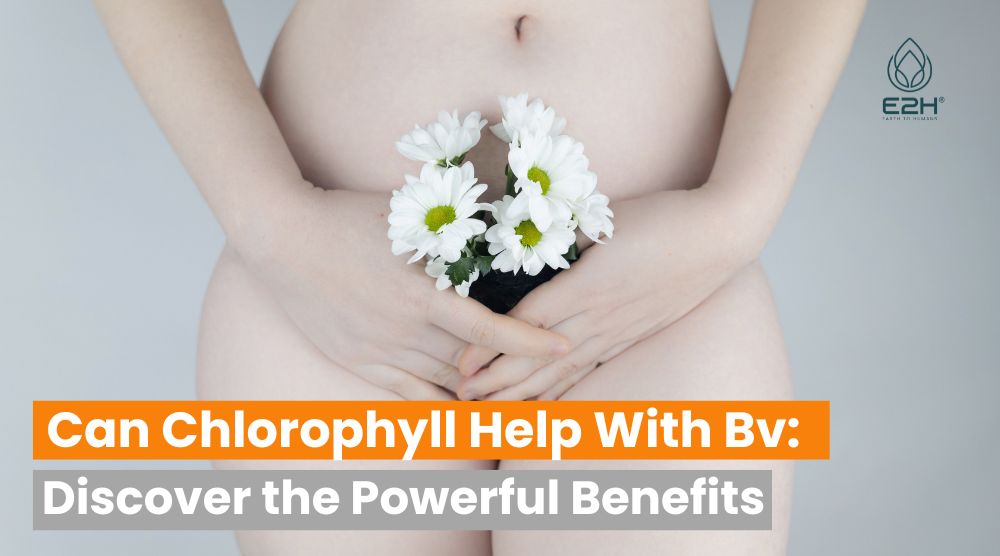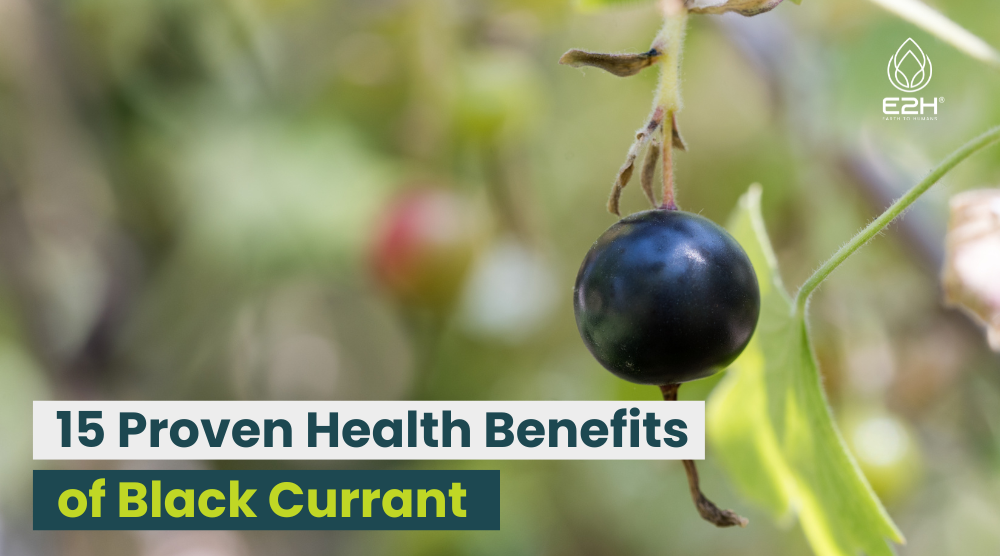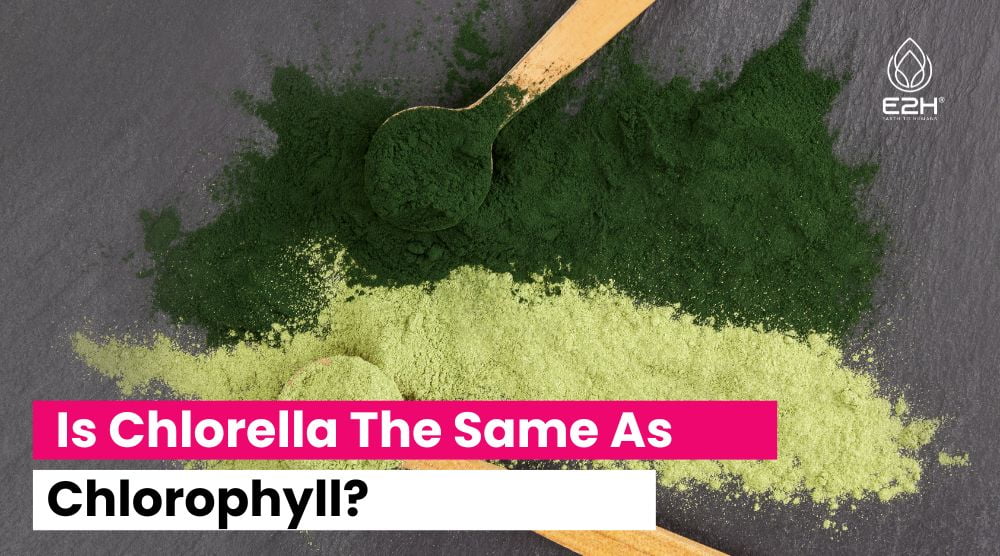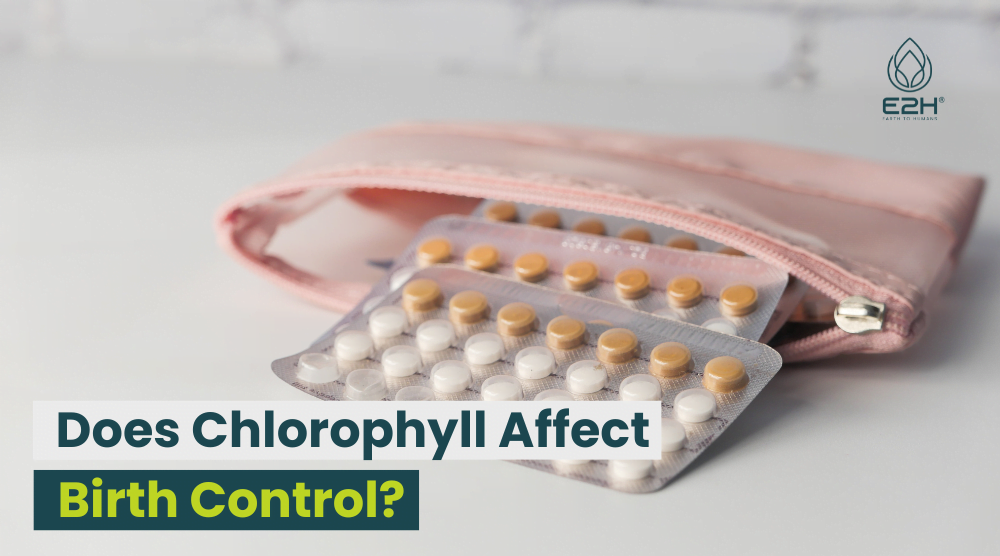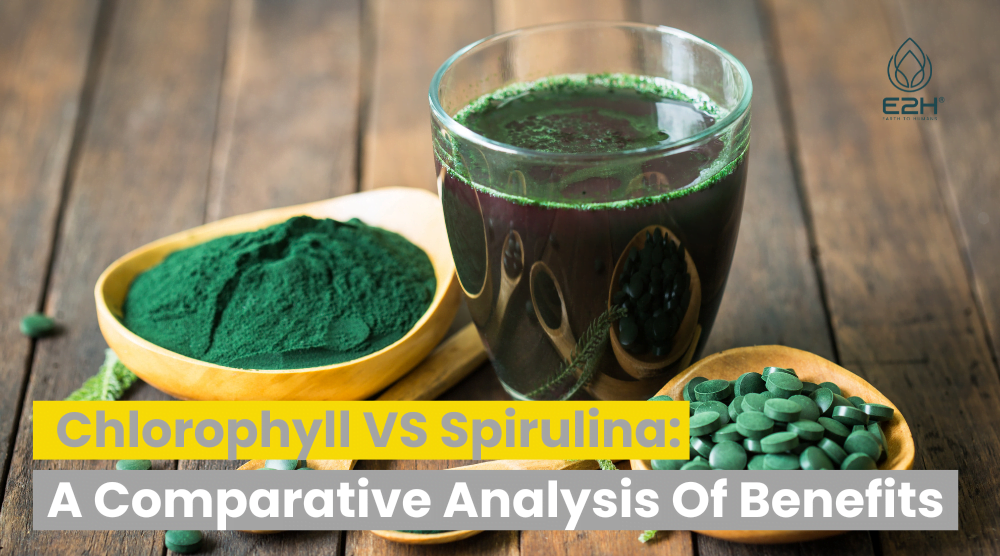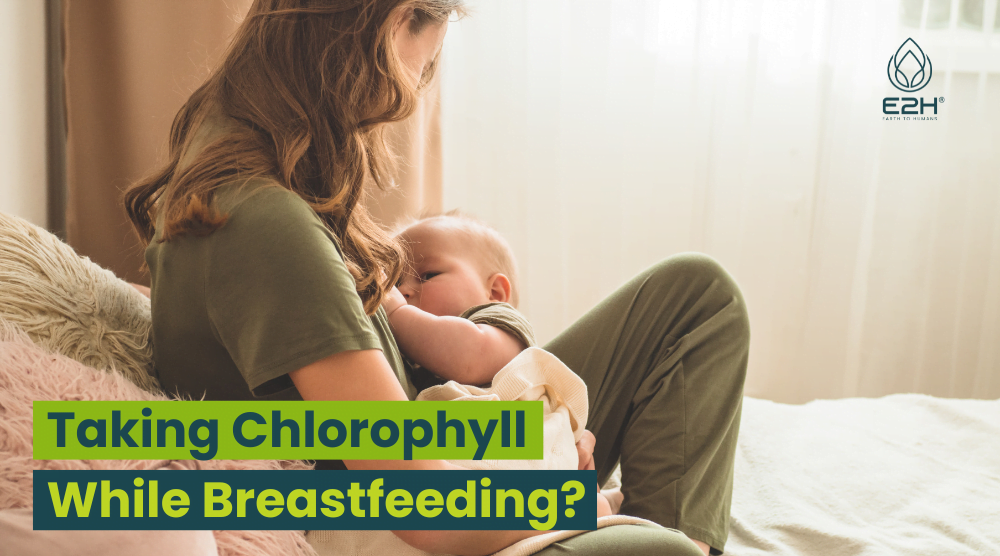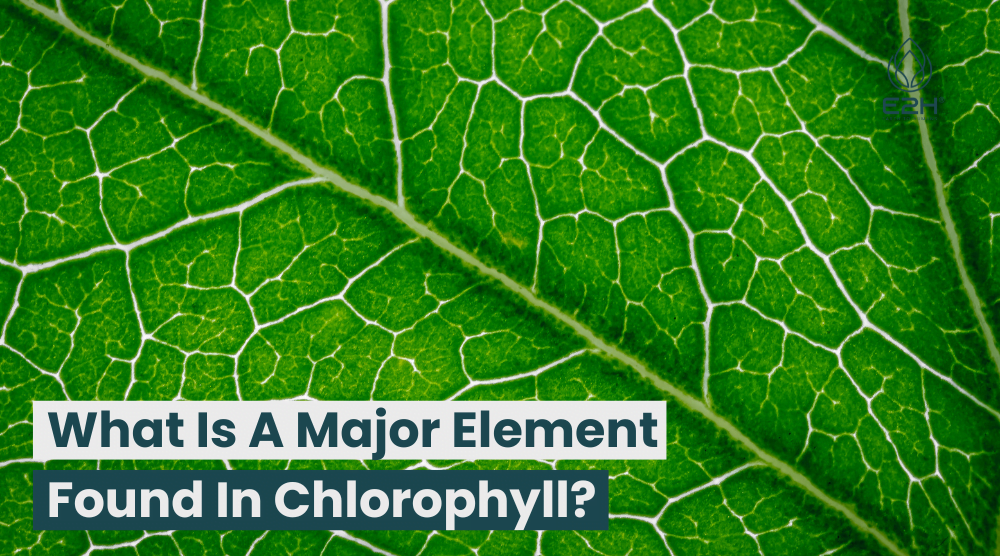Limited research suggests that chlorophyll may have deodorizing and antibacterial properties that could potentially help with BV symptoms. However, more research is needed to determine its effectiveness and safety.
What is Chlorophyll?
Chlorophyll is a green pigment found in plants and algae that is responsible for photosynthesis, the process by which plants convert sunlight into energy. Chlorophyll has been used in traditional medicine for centuries, particularly in Chinese and Ayurvedic medicine, to treat a variety of ailments.
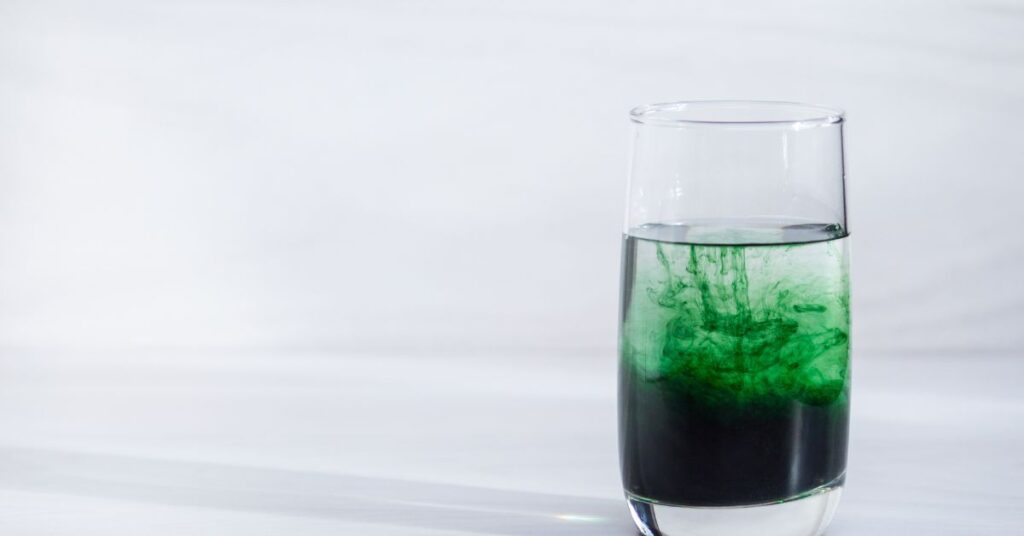
It is available for prescription and in various forms, including liquid, powder, and capsules. Chlorophyll is believed to have antioxidant and anti-inflammatory properties, and is thought to help detoxify the body by binding to toxins and removing them from the body. Additionally, some studies suggest that chlorophyll may have antibacterial properties that could help fight bacterial infections.
Can Chlorophyll Help with Bv(Bacterial Vaginosis)?
Bacterial vaginosis (BV) is a common condition in women that occurs when the balance of bacteria in the vagina is disrupted, leading to an overgrowth of harmful bacteria. Symptoms of BV may include vaginal discharge, odor, and itching the vaginal area, and it can be uncomfortable and frustrating to deal with an infection. While antibiotics are the primary treatment for BV, some women may prefer to try natural remedies, such as chlorophyll.
Limited research suggests that chlorophyll may have deodorizing and antibacterial properties that could potentially help with BV symptoms. One study published in the Journal of Obstetrics and Gynaecology Research found that a vaginal suppository containing chlorophyll significantly reduced vaginal odor in women with BV. Another study published in the Journal of Alternative and Complementary Medicine found that chlorophyll capsules were effective at reducing body odor in men.
Chlorophyll is believed to work by binding to toxins and helping to remove them from the body. It may also have antibacterial properties that could help fight and kill the harmful bacteria and yeast that cause BV. However, more research is needed to determine the safety and effectiveness of chlorophyll for BV, and it is important to speak with a healthcare provider before using chlorophyll or any other natural remedy for BV.
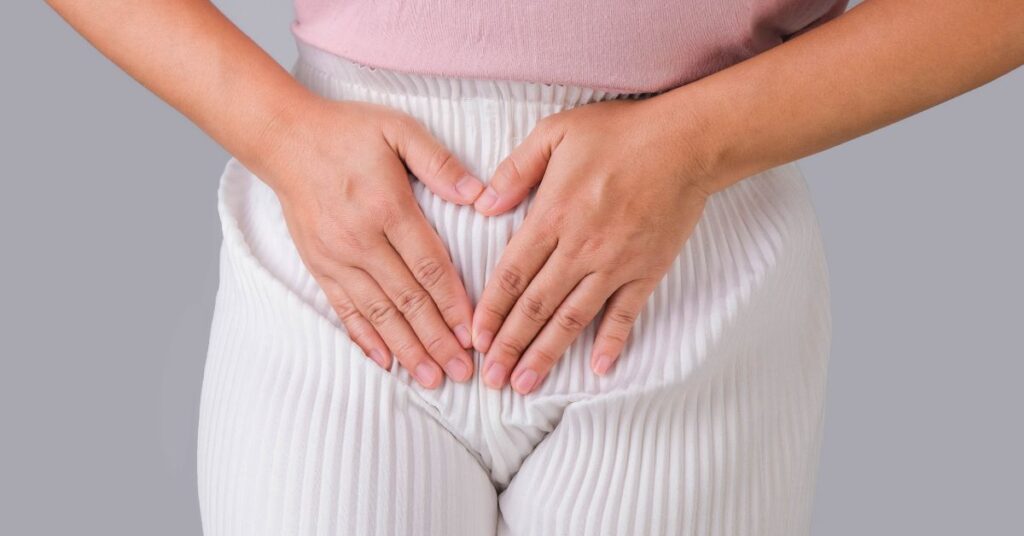
In addition to chlorophyll, there are several other natural remedies that have been suggested for treating BV. These include probiotics, tea tree oil, honey and boric acid. Probiotics are thought to help restore the balance of good and bad bacteria in the vagina, while tea tree oil and boric acid have been shown to have antibacterial properties that could help fight the harmful bacteria that cause BV.
How Does Chlorophyll Work?
Chlorophyll works by absorbing light energy from the sun and using it to power the process of photosynthesis in plants. In humans, chlorophyll is believed to have a variety of health benefits due to its antioxidant and anti-inflammatory properties.
Chlorophyll is thought to help detoxify the body by binding to toxins and removing them from the body. Additionally, some studies suggest that chlorophyll may have antibacterial properties, which could help fight bacterial infections.
When used topically for conditions like acne or wounds, chlorophyll is thought to help promote healing and reduce inflammation. However, more research is needed to fully understand the mechanisms by which chlorophyll works in the human body.
How To Get Rid Of Bacterial Vaginosis (BV) Naturally?
Bacterial vaginosis (BV) is a common condition that can cause discomfort and embarrassment for women. While antibiotics are typically used to treat BV, there are also several natural remedies that may be helpful in reducing symptoms and promoting healing. Here are some natural ways to get rid of BV:
- Probiotics: Probiotics can help restore the balance of healthy bacteria in the vagina, which can be disrupted by BV. Foods like yogurt, kefir, and sauerkraut are good sources of probiotics.
- Tea tree oil: Tea tree oil has antibacterial properties that may help fight the harmful bacteria that cause BV. It can be diluted with a carrier oil and applied topically to the affected area.
- Apple cider vinegar: Apple cider vinegar has been suggested as a natural remedy for BV due to its potential antibacterial and pH-balancing properties. It can be diluted with warm water and used as a vaginal wash.
- Garlic: Garlic has natural antibacterial properties and may help fight the harmful bacteria that cause BV. It can be eaten raw or taken in supplement form.
- Chlorophyll: Chlorophyll may help neutralize vaginal odor and has potential antibacterial properties that may be helpful in fighting BV.
It is important to speak with a healthcare provider before using any natural remedies for BV, as they may not be appropriate for everyone and could interact with medication or other health conditions.
What are the Potential Benefits of Using Chlorophyll for BV?
Chlorophyll has been suggested as a natural remedy for BV due to its potential deodorizing and antibacterial properties. The potential benefits of using chlorophyll for BV include:
- Reduced vaginal odor: Chlorophyll may help to neutralize the odor associated with BV, which can be a major source of discomfort and embarrassment for women.
- Antibacterial properties: Chlorophyll is believed to have antibacterial properties, which could help fight the harmful bad bacteria that cause BV.
- Detoxification: Chlorophyll is thought to help remove toxins from the body by binding to them and removing them from the body, which may help to reduce inflammation and promote healing.
However, it is important to note that there is limited research on the effectiveness of chlorophyll for BV, and more research is needed to determine its safety and effectiveness. Therefore, it is important to speak with a healthcare provider before using chlorophyll or any other natural remedy for BV.
Is chlorophyll a helpful remedy for reducing vaginal odor?
Chlorophyll has been suggested as a natural remedy for reducing vaginal odor due to its potential antibacterial properties and ability to neutralize odors in urine. While more research is needed to determine the effectiveness of chlorophyll specifically for vaginal odor, some studies have found that chlorophyll-containing supplements can help with vagina odor and reduce body odor in general.
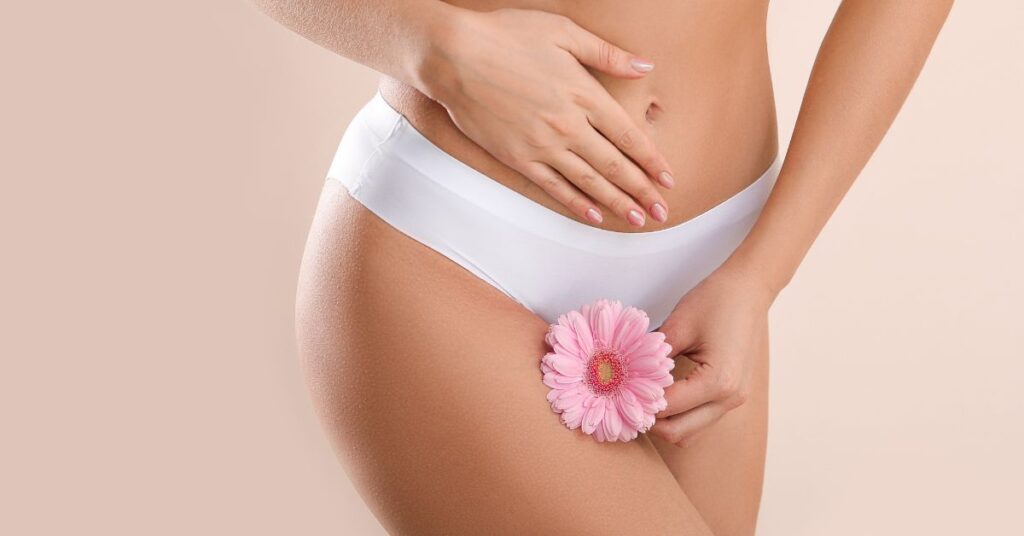
Additionally, anecdotal evidence suggests that using chlorophyll as a dietary supplement or topical treatment may help alleviate vaginal odor. However, it is important to speak with a healthcare provider before using chlorophyll or hydrogen peroxide or any other natural remedy for vaginal odor, as underlying medical conditions or infections may require medical treatment.
Can chlorophyll be effective in reducing body odor?
Absolutely! Chlorophyll has the potential to be a natural and effective remedy for reducing body odor. It works by neutralizing odors and potentially reducing the production of volatile sulfur compounds that can contribute to bad breath and body odor. Some studies have even found that chlorophyll-containing supplements can help reduce body odor in general.
While using chlorophyll as a remedy for body odor is a great idea, it’s important to remember that it should not replace good personal hygiene practices and a healthy diet. If you’re looking for a natural and effective way to reduce body odor, incorporating chlorophyll into your routine of life might just be the solution you need!
What are the Risks and Side Effects of Chlorophyll Use?
Chlorophyll is generally considered safe for most people when taken in appropriate doses. However, there are some potential risks and side effects associated with its use. These include:
- Allergic reactions: Some people may be allergic to chlorophyll, which could cause symptoms like itching, hives, and difficulty breathing.
- Digestive issues: In some cases, chlorophyll supplements may cause digestive issues like diarrhea or constipation.
- Photosensitivity: Chlorophyll can make the skin more sensitive to sunlight, which could increase the risk of sunburn or other skin damage.
- Interference with medications: Chlorophyll may interact with certain medications, such as blood thinners, and could interfere with their effectiveness.
It is important to speak with a healthcare provider before using chlorophyll or any other natural remedy, particularly if you have any underlying health conditions or are taking medications. Pregnant or breastfeeding women should also exercise caution when using chlorophyll, as there is limited research on its safety during these periods.
When Is the Best Time to Drink Liquid Chlorophyll?
The best time to drink liquid chlorophyll may vary depending on individual preferences and needs. Some people prefer to drink it in the morning to help boost energy with minerals and detoxify the body, while others may prefer to drink it in the evening to promote relaxation and better sleep.
It is generally recommended to drink liquid chlorophyll on an empty stomach, as this can help improve absorption and reduce the risk of digestive issues. It is important to follow the instructions on the product label and speak with a healthcare provider before using liquid chlorophyll, particularly if you have any underlying health conditions or are taking medications.
What Is Liquid Chlorophyll Good For?
Liquid chlorophyll is a popular dietary supplement that is derived from the green pigment found in plants. It is often promoted for its potential health benefits, including improved digestion, detoxification, Fights Candida (Yeast Infections & BV) and immune system function.
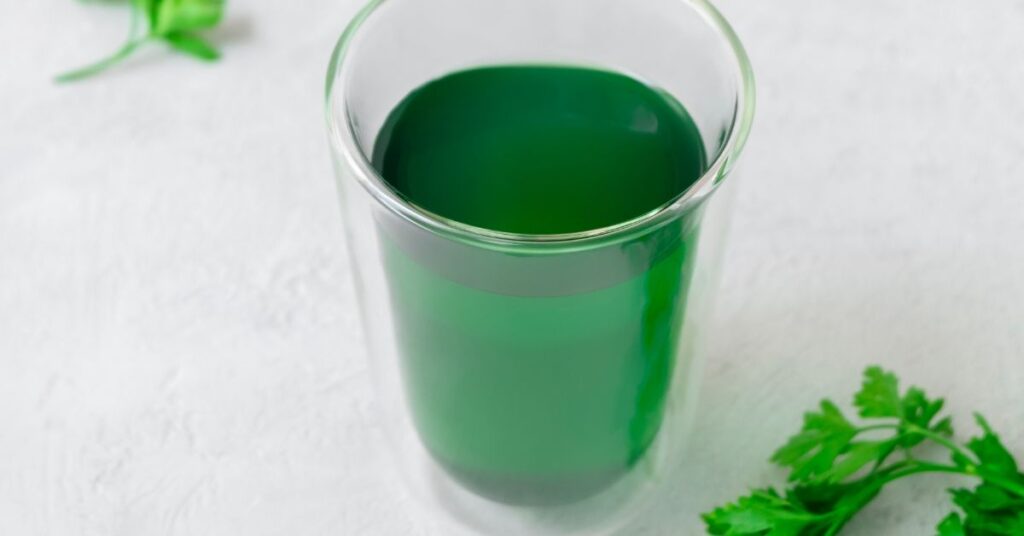
Liquid chlorophyll is also believed to have antioxidant and anti-inflammatory properties, which could help protect the body against damage from free radicals and promote overall health and wellness. However, more research is needed to determine the safety and effectiveness of liquid chlorophyll, and it is important to speak with a healthcare provider before using it or any other natural remedy.
How to Make Liquid Chlorophyll?
Liquid chlorophyll can be made at home using a few simple ingredients and equipment. Here is a basic recipe for making liquid chlorophyll:
Ingredients:
- Fresh leafy greens (such as spinach, kale, or parsley)
- Water
- Blender or juicer
- Strainer or cheesecloth
Instructions:
- Wash the leafy greens thoroughly and chop them into small pieces.
- Place the chopped greens in a blender or juicer and add a small amount of water.
- Blend or juice the greens until they are broken down and the liquid turns a bright green color.
- Pour the liquid through a strainer or cheesecloth to remove any pulp or solids.
- Store the liquid chlorophyll in an airtight container in the refrigerator for up to one week.
It is important to note that the exact recipe and method for making liquid chlorophyll may vary depending on the specific type of leafy greens used and personal preferences. Additionally, it is recommended to speak with a healthcare provider before using homemade liquid chlorophyll, as its safety and effectiveness may not be well established.
How Do I Get Rid of Bacterial Vaginosis?
FAQs
Can chlorophyll be used during pregnancy?
There is not enough research on the safety of using chlorophyll during the last year of pregnancy. Therefore, it is recommended that pregnant women avoid using chlorophyll supplements unless advised by a healthcare provider.
How should chlorophyll be used for BV?
Chlorophyll can be used in the vagina in various forms, including liquid, powder, and capsules. Some women may choose to use chlorophyll supplements orally, while others may use it topically as a vaginal suppository or douche. However, it is important to speak with a healthcare provider before using chlorophyll for BV, as there is limited research on its effectiveness and safety.
Are there any other natural remedies for BV?
There are several natural remedies that have been suggested for treating BV, including probiotics taking supplements, tea tree oil, and boric acid. However, more research is needed to determine their effectiveness and safety.
Conclusion
Bacterial vaginosis can be a frustrating and uncomfortable condition for many women to deal with. While antibiotics are the primary treatment for BV, some women may prefer to take antibiotics and try natural remedies, such green plants such as chlorophyll. While there is limited research on the effectiveness of chlorophyll for BV, some studies suggest that it may have deodorizing and antibacterial properties that could help with symptoms.
More research is needed to determine the safety and effectiveness of chlorophyll in a few drops for BV. Therefore, it is important to speak with a healthcare provider before using chlorophyll or any other natural remedy in a few drops for BV.
